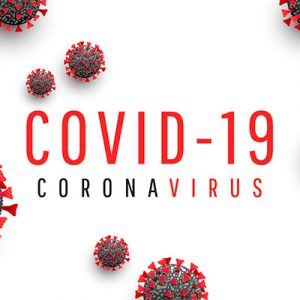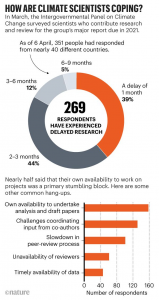 Since the COVID-19 outbreak began, governments, universities, and businesses have pivoted to remote classrooms and workplaces for everyone’s safety. Out of necessity, students and faculty have rapidly adapted to online teaching and learning to finish the spring term—but recreating the lab experience remotely has been more challenging. Beyond academia, the lockdowns have disrupted researchers in government and industry labs, negatively impacting timelines and objectives. At the same time, the challenges that the solid state and electrochemical sciences are tackling have not gone away, leading to more stress and frustration.
Since the COVID-19 outbreak began, governments, universities, and businesses have pivoted to remote classrooms and workplaces for everyone’s safety. Out of necessity, students and faculty have rapidly adapted to online teaching and learning to finish the spring term—but recreating the lab experience remotely has been more challenging. Beyond academia, the lockdowns have disrupted researchers in government and industry labs, negatively impacting timelines and objectives. At the same time, the challenges that the solid state and electrochemical sciences are tackling have not gone away, leading to more stress and frustration.

Scientists contributing to the 2021 Intergovernmental Panel on Climate Changes report delays in their research of one to three months. Source – Nature
Supporting each other during this period of disruption is vital. The ECS community is a valuable and dependable resource for you and your fellow members. ECS editorial teams persist in supporting the research publication pipeline. Collaboration helps us continue advancing research through the crisis. Learning how others are managing, and sharing your creative approaches, brings our community closer when we next gather. #PRIME2020 is moving ahead, and we are carefully tracking international travel, health, and safety policies.
There is no shortage of inspiration on social media! One researcher, clearly missing sports events and post-game analyses, created his own video “press conference” celebrating the acceptance of his research paper. Posted on Twitter on April 2, it was viewed over 550,000 times in a week. Follow #AcademicLife and #PhDLife for a slice of life—and maybe a laugh—with researchers in all disciplines.
Share how you’re adapting or responding to COVID-19. Tag ECS on your posts!
Twitter: @ECSorg
Facebook: @TheElectrochemicalSociety
Instagram: @electrochemsociety
LinkedIn: @ecs—the-electrochemical-society
Now is a great time to reach into the ECS community. Engage with your fellow members and mentors across the globe. While we won’t be meeting this May in Montreal, we hope you connect virtually with collaborators and fellow members. People are learning to connect in new ways to feel less isolated. If you haven’t already, jump on the Zoom bandwagon (What’s APP, Google Hangouts, Skype, and FaceTime work just as well). Make some time to reach out to a former colleague, or someone you recently met, perhaps at your last ECS conference. If you’re not sure how to reach them, check the ECS Member Directory—and while you’re at it, please update your profile, so others can keep up with you. We’re hoping to hear about some virtual happy hours among members—ECS Student Chapters, are you up to the challenge? To avoid video-conference fatigue, organize your schedule to separate time for engaging from time for work that takes deep thought—unless you’re someone who switches gears easily.
Post Manuscript Submission Press Conference. Looking to use this momentum and take it into future papers.. pic.twitter.com/nOVRH5xMLN
— Ciaran Fairman, PhD (@CiaranFairman) April 2, 2020
“Alone together” on social media
While you’re navigating the disruption, social media channels are tailor-made for connecting with others and following news in your communities of interest. Two Temple University students launched a Slack Channel that connects food insecure students with free meals. You may find that turning up the volume on your social presence makes you feel more connected. Or, if your news feed affects your sense of well-being, you may need to step away for a time.
- Pay it forward; others can benefit from your know-how. With labs closed, you may have figured out how to continue your research at home. Maybe you can share your “home lab hack” on social media. Make a video about lab safety to help students (and parents) with home chemistry experiments. Or create an infographic visualizing basic science concepts. Don’t be afraid to inject a bit of (appropriate) humor. If you know how to optimize videos and graphics, teach the rest of us about creating engaging, visually exciting social content.
- Attend one of the many virtual events that are offered for free in the science and research community during this difficult period. Tweet or post about what catches your attention or gets you thinking. —You may be pleasantly surprised by the responses you generate! Make sure to use the event and organization hashtag, and tag @ECSorg.
- Engage on ECS social channels. Start your own threads by sharing observations, asking questions, or pulling quotes from papers or other content you read. Respond to posts or share them. Tag authors, friends, ECS Student Chapters, or anyone you want to engage. Take the risk and post—it doesn’t have to be profound to spark interest.
- Create/build out your profiles, especially LinkedIn and researcher networks such as Mendeley and ResearchGate. These are especially useful when it’s time to apply for jobs and grants. Make sure to link to your published research. As a recent study shows, research shares on social reference sites correlate with later citation counts.
Don’t forget; ECS is here for you!

